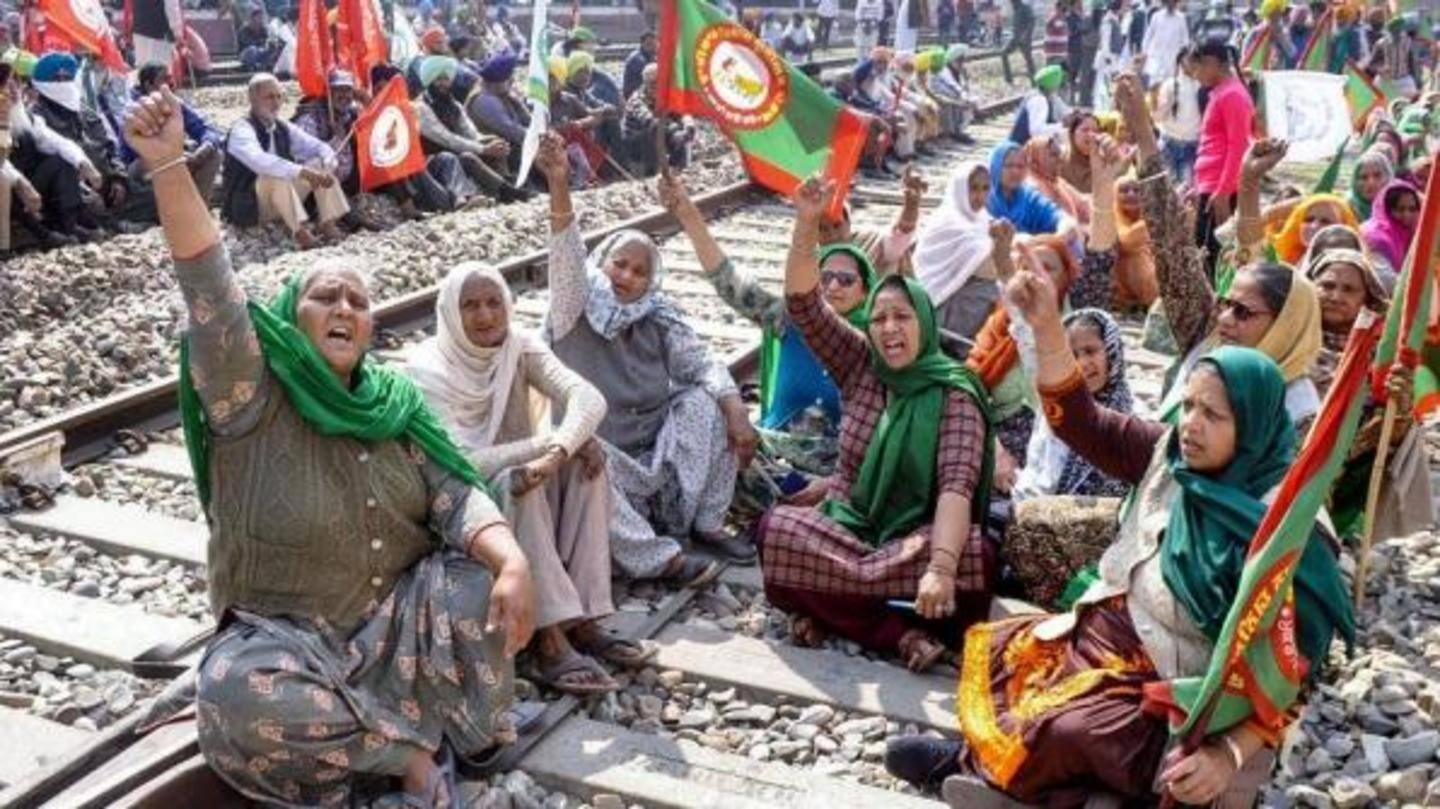
Rail roko: Farmers block rail tracks; 'minimal impact,' says Railways
What's the story
Farmers protesting against the central government's new agricultural laws blocked rail tracks in several states on Thursday as part of their "rail roko" protest.
The protest was announced last week by the Samyukta Kisan Morcha (SKM), an umbrella body of farmer unions spearheading the agitation.
The Indian Railways said that Thursday's protest had "minimal impact" on rail services.
Here are more details.
Details
Protest lasted from 12 pm-4 pm
The "rail roko" protest lasted from 12 pm-4 pm on Thursday. Around 25 trains were regulated by the Indian Railways due to the protest.
The protesting farmers blocked rail tracks in parts of several states including Bihar, Haryana, Karnataka, Maharashtra, Odisha, Punjab, and Uttar Pradesh.
Security was tightened in Haryana and Punjab- key regions where the protests have been most intense.
Railways
'Negligible or minimal impact on railway services'
A spokesperson for Indian Railways said there was negligible or minimal impact on railway services due to the rail roko agitation on Thursday.
A majority of zonal railways reported no incident due to the protest, he said.
"The rail roko agitation passed off without any untoward incident," he said, "Train movement in all the zones is normal now."
Quote
'Few trains were stopped in some areas'
The spokesperson said, "Majority of the zones have reported not a single case of any stoppage of trains by the agitators."
"Few trains were stopped in some areas of some Railway zones but now train operation is normal and trains are being operated smoothly. While dealing with the Rail roko agitation, utmost patience was exercised by all concerned," he added.
Protest
Farmers protesting against three laws passed last September
The protesting farmers have blocked several of Delhi's borders including Singhu, Chilla, Tikri, Ghazipur, and the Haryana-Rajasthan border.
The farmers have been protesting against the Farmers' Produce Trade and Commerce (Promotion and Facilitation) Act, 2020; the Farmers Empowerment and Protection) Agreement on Price Assurance and farm Services Act 2020; and the Essential Commodities (Amendment) Act, 2020.
The laws were passed in September last year.
Protest
Protesters have camped at Delhi's borders since November
Over several months, the farmers' agitation has only become more intense.
The protests strengthened in November-end as thousands of farmers from several states reached Delhi, camping at the city's borders.
Farmers fear that by allowing trade outside APMC mandis, the laws will weaken the mandis and they would be deprived of Minimum Support Prices (MSPs), leaving them vulnerable to exploitation by corporations.